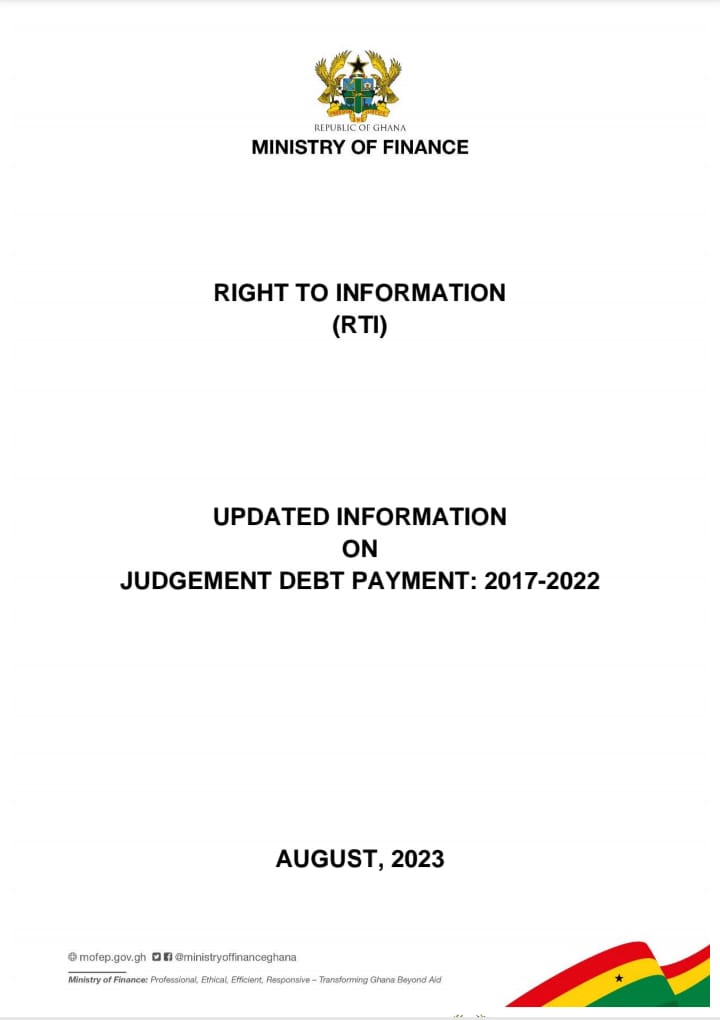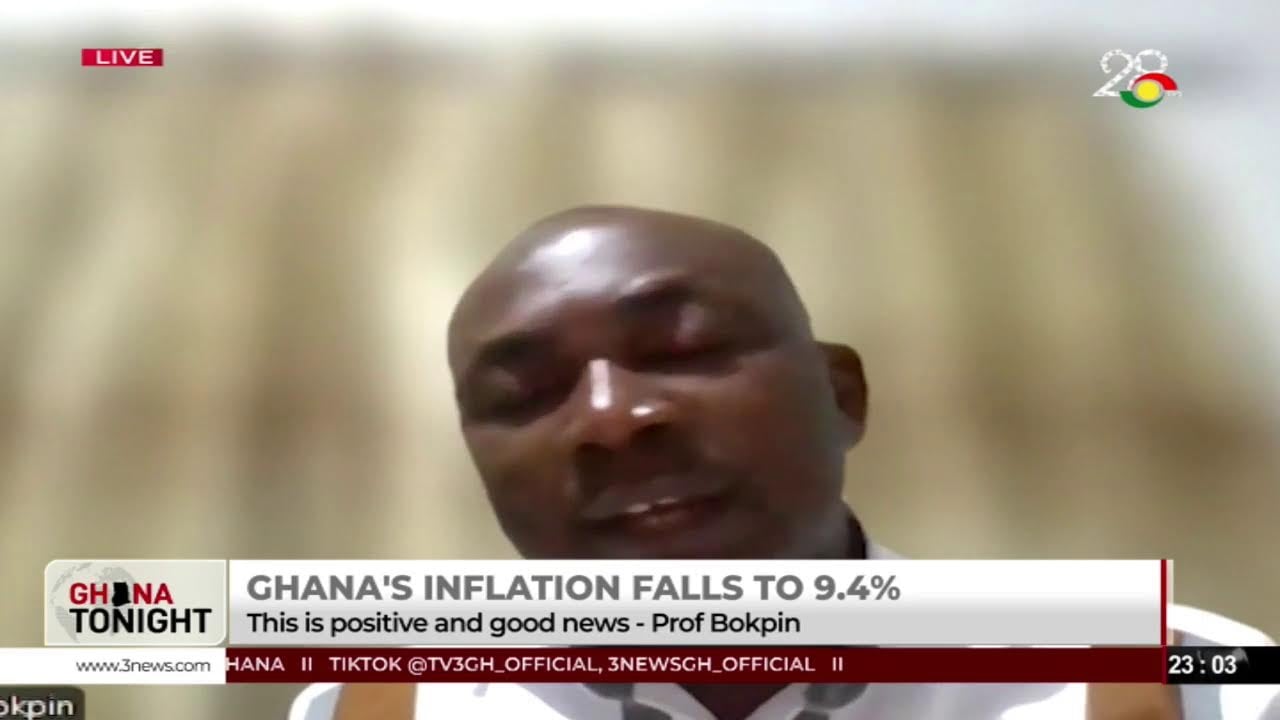
By Elikem ADISENU-DOE
“Economic development depends, to a large extent, on healthy financial interaction and transaction; these, in turn, cannot exist without credibility. It is only when participants in business live up to their legal obligation and cease using the processes of the courts to evade financial responsibilities that this country can finally launch itself firmly on the road to economic success.
Where money is unjustly withheld, then the creditor must be seen to have been justly recompensed by the debtor for the unjust use of other people’s money. Any system that tends to encourage debtors to shirk their responsibilities benefits no one but such delinquent debtors; and poor debt servicing in the business sector only fans, further, the flames of inflation.
It seems to me that if the consequences of delinquency were made less appealing than they are now, then the attraction of needless protracted litigation would be significantly reduced” per Akuffo JSC (as she then was) in the case of IBM World Trade v Hansen [2001-2002] SCGLR 393, Akuffo JSC
Debt recovery through litigation in Ghana presents a significant challenge for creditors seeking to enforce claims for liquidated sums.
Although the legal framework in Ghana offers several mechanisms aimed at facilitating debt collection, these are frequently undermined by procedural delays and tactical manoeuvres employed by recalcitrant debtors.
A particularly troubling concern is the dissipation of assets by debtors before judgment is secured, which often renders court orders ineffectual and unenforceable.
This article examines the statutory and procedural architecture governing debt recovery in Ghana, identifies the key practical impediments to effective enforcement and proposes targeted reforms to bolster the efficacy of judgment creditor remedies.
Practical impediments to effective debt recovery through litigation
When the law becomes a shield – Debtors and the art of delay
Once a lawsuit is commenced, it is not uncommon for debtors to adopt various strategies aimed at stalling the wheels of justice. While every litigant is entitled to a fair hearing and even those accused of the most heinous crimes are afforded a robust defence, many debtors facing mere civil claims often take this entitlement to extremes.
They skilfully navigate the rulebook, filing a stream of applications, some frivolous, seeking adjournments without just cause and contesting every procedural step, no matter how minor. These tactics not only delay the delivery of judgment but also escalate the creditor’s legal costs.
Although expedited mechanisms, such as summary judgment applications, exist to dispose of clear-cut cases of indebtedness devoid of reasonable defence, Ghanaian courts have historically been hesitant to grant them, preferring instead to allow matters to proceed to full trial in the interest of fairness and justice.
Yet, even when a creditor eventually secures a judgment, the battle is far from over. Judgment debtors often resort to inventive means to postpone execution by filing appeals, applying for stays of execution and exploring every available procedural detour.
While remedies such as a stay of execution are legitimate tools in the hands of litigants, they are sometimes employed tactically to frustrate enforcement.
The threshold for obtaining such relief is high and a successful application is presumed to have met that standard. Nevertheless, the overall effect is a justice system that, though procedurally sound, can often feel agonisingly slow to those seeking swift enforcement of a rightful claim.
When assets slip away – A creditor’s dilemma before judgment
A significant obstacle for judgment creditors lies in the ease with which debtors can dispose of or conceal assets before a court delivers its ruling. It is not uncommon for debtors to drain bank accounts, transfer ownership of properties to relatives or trusted associates or dissolve businesses entirely, all in a calculated effort to thwart execution.
For many creditors who retain legal counsel in the hope of recovering debts, a pressing and recurring concern is whether the debtor, if a company, remains a going concern, or if an individual, possesses any traceable assets or funds in financial institutions.
In practice, most lawyers handling debt recovery matters work on terms where their fees hinge not merely on securing a favourable judgment, but on the actual recovery of the sums owed. In plain truth, a judgment that yields no recovery is scarcely better than no judgment at all.
When the corporate veil remains firmly drawn
The doctrine of separate legal personality, eloquently affirmed in the landmark English case of Salomon v. Salomon [1897] AC 22 and reinforced by the Ghanaian case of Mokor v. Kuma, [1998-1999] SCGLR, 620, remains a cornerstone of corporate law in Ghana. However, when exploited by unscrupulous directors and shareholders, this otherwise noble principle can become a formidable barrier to debt recovery.
By recognising a company as a distinct legal entity, the law shields those behind it from personal liability, even when they are the true beneficiaries of the company’s dealings. This legal insulation has, in many cases, emboldened directors to act with impunity, confident that their personal assets remain beyond the reach of creditors.
Consequently, debts may be incurred in the company’s name, while assets are siphoned off or transferred to affiliates, leaving the company hollowed out and judgment creditors with little or nothing to recover. Though the law provides avenues for lifting the corporate veil in cases of fraud or abuse, etc.
Ghanaian courts remain cautious and restrained in invoking this remedy, often to the dismay of creditors who find justice elusive despite favourable judgments. Such manipulation of the corporate veil, when left unchecked, undermines accountability and frustrates the ends of justice.
Underdeveloped asset tracing regime
A major hurdle in post-judgment enforcement in Ghana is the absence of a comprehensive asset tracing framework. Judgment creditors often struggle to locate and attach assets belonging to judgment debtors, largely due to the lack of a centralised and accessible database for property ownership. The challenge is further compounded by the reality that many owners of immovable property do not formalise their ownership through proper registration, rendering such assets virtually invisible to those seeking to enforce judgments.
Even in instances where a diligent judgment creditor succeeds in tracing and securing an attachment over a debtor’s asset, such efforts are frequently met with resistance from third-party claimants who assert competing ownership rights, often to the deep frustration and disappointment of the judgment creditor. This lack of transparency and uncertainty severely undermines the efficacy of the debt recovery process and weakens the authority of judicial outcomes.
High threshold for the grant of interim relief
In contrast to some jurisdictions where courts readily grant asset-freezing orders at the onset of litigation, Ghanaian law provides limited interim remedies for the protection of creditors. While mechanisms such as interim preservation orders under Order 25 of the High Court (Civil Procedure) Rules, 2004 (C.I. 47) and Mareva injunctions exist in principle, their practical utility is constrained.
Mareva injunctions, which are designed to restrain a debtor from dissipating assets pending the outcome of proceedings, are seldom granted by Ghanaian courts, primarily due to the high threshold of proof required. Applicants must demonstrate, with compelling evidence, a real risk of unjustifiable dissipation of assets intended to frustrate any potential judgment. This onerous evidentiary burden, coupled with judicial caution in limiting a party’s proprietary rights before final adjudication, often renders such relief elusive in practice.
Recommendations for reform
To address these challenges, the following reforms are suggested.
Strengthening pre-judgment asset preservation protocols
The Courts should be better empowered to grant Mareva injunctions to prevent debtors from dissipating assets before a judgment is rendered. A statutory framework should also be introduced to enable creditors to apply for asset preservation orders at the commencement of litigation, provided they can establish a prima facie case of indebtedness against the defendant.
The current high threshold required for the grant of interim asset preservation measures unduly hampers access to justice for creditors and frustrates the effectiveness of the judicial process. The insistence on proving a good arguable case or exceptionally strong or near-irrefutable case before such orders are made often defeats the very purpose of interim relief, since by the time judgment is delivered, the debtor may have dissipated assets beyond reach.
Again, establishing that a real risk of dissipation of assets exists is not very easy to achieve and this presents a real impediment to securing such preservation orders. A more balanced approach would be to reduce this threshold to a prima facie standard. Under this approach, it would be sufficient for the creditor to demonstrate that there is a serious question to be tried, or that the debtor has a case to answer, for the court to intervene and preserve assets.
Such a standard not only secures the creditor’s potential remedy but also encourages both parties and their counsel to expedite the trial of the matter, knowing that the assets will remain preserved until a final determination is reached. In effect, this strikes a fair balance between the rights of the debtor and the legitimate interests of the creditor while reinforcing the integrity of the judicial process.
Courts should adopt a more receptive and proactive stance towards granting interim preservation relief. For example, in the Netherlands, the legal remedy of conservatory arrest or pre-judgment attachment is used to secure assets or evidence pending the outcome of litigation.
Governed by Article 700 of the Dutch Code of Civil Procedure, this measure is designed to prevent debtors from disposing of assets and to protect creditors’ interests. Applicants must demonstrate a well-founded suspicion of embezzlement and file an ex parte application with the appropriate district court.
A wide range of assets may be frozen, including real property, bank accounts, and intellectual property rights. The procedure involves strict formalities, including a requirement to initiate substantive proceedings within a stipulated timeframe. Although Ghana has a comparable mechanism under Order 25 of C.I. 47, the threshold for obtaining such relief is considerably high, which may hinder its effectiveness.
A proactive judicial approach to veil piercing
While this proposed approach may attract significant opposition and critical scrutiny, it holds the potential to serve as a much-needed corrective measure in addressing the persistent challenge posed by rogue company officers who exploit the corporate veil to evade accountability.
A responsive legal framework that facilitates the readiness of Ghanaian courts to pierce the corporate veil in cases of impropriety will reinforce the integrity of the justice system.
To confront this issue, Ghanaian courts should adopt a more pragmatic and justice-driven approach to piercing the corporate veil, particularly in cases involving fraud, asset-stripping, or other abuses of the corporate form.
Legal reform may also be warranted to broaden the statutory grounds upon which personal liability can be imposed on directors and shareholders, especially where there is clear evidence of misconduct or bad faith.
On the contractual front, creditors must play a proactive role in safeguarding their interests. This includes conducting thorough due diligence prior to extending credit, insisting on personal guarantees from company directors and incorporating protective clauses such as joint and several liability provisions into lending agreements, where appropriate.
Together, these judicial and contractual safeguards would promote greater accountability, discourage the misuse of the corporate form and ensure that limited liability does not become a shield for unscrupulous conduct to the detriment of legitimate creditors.
Strengthening mechanisms for asset tracing
To strengthen post-judgment enforcement and curb asset concealment, Ghana should establish a comprehensive and centralised asset registry. This registry should integrate data on the ownership of land, vehicles, financial instruments and other significant assets. By consolidating this information into a single, accessible platform, creditors and enforcement authorities would be better positioned to trace and verify assets held by judgment debtors.
Such a system would not only enhance transparency but also deter the fraudulent transfer or dissipation of assets during or after litigation. The registry should be supported by robust verification protocols, mandatory disclosure obligations and inter-agency data sharing, particularly among the Lands Commission, Driver and Vehicle Licensing Authority (DVLA), banks and the Office of the Registrar of Companies (ORC)
In jurisdictions like the United Kingdom and Singapore, similar systems have greatly facilitated asset tracing, expedited enforcement procedures and improved the overall efficiency of debt recovery. Implementing such a mechanism in Ghana would represent a significant step toward modernising the enforcement of judgments and strengthening the rule of law.
Reinforcing collateral and guarantee protocols
To mitigate credit risk and promote responsible lending, lenders, whether banking institutions or private financiers, should consistently require borrowers to provide adequate collateral before disbursing loans. Secured lending not only protects the lender’s interests but also encourages prudence and accountability on the part of borrowers.
In instances where the borrower is a corporate entity, it is prudent for the lender to go a step further by requiring at least one director to furnish a personal guarantee.
This ensures that if the company becomes insolvent or lacks sufficient assets to satisfy the debt, the lender may enforce the personal guarantee and recover the debt from the personal assets of the guarantor-director. This practice serves as both a financial safeguard and a behavioural deterrent against reckless or bad-faith borrowing.
To further reinforce this approach, lenders should conduct due diligence on the guarantor’s financial standing and ensure that the guarantee is properly documented, legally enforceable and registered where necessary. This dual-layer security, being the corporate collateral and personal guarantee has proven effective in many jurisdictions for reducing default rates and enhancing recovery outcomes.
Expediting debt recovery proceedings
To enhance the efficiency of debt enforcement and improve creditor confidence, Ghana’s judicial system should prioritise the swift resolution of debt recovery matters. One key measure would be the designation of strict timelines for the conduct of cases in the commercial courts on a fast-track basis. These courts should operate with clearly defined timelines within which cases must be resolved, thereby minimising unnecessary delays and legal uncertainty.
Additionally, courts should be empowered to impose stiffer penalties on debtors who engage in frivolous or dilatory litigation tactics intended solely to frustrate enforcement or prolong proceedings. Sanctioning such conduct would deter procedural abuse and promote a culture of good faith litigation.
A commendable development in this regard is the amendment to Order 58 of the High Court (Civil Procedure) Rules, 2004 (C.I. 47) by C.I. 133, which now permits creditors to file applications for summary judgment at any time after the defendant enters appearance.
This is a significant improvement over the previous position, where such applications could only be brought after the conclusion of the pre-trial settlement conference, a procedural bottleneck that often delayed progress and undermined the efficacy of debt recovery.
These reforms, when combined with institutional support, judicial training and digitisation of court processes, have the potential to significantly streamline debt recovery and restore greater confidence in the enforceability of financial obligations.
Conclusion
Debt recovery litigation in Ghana is plagued by systemic challenges that render court judgments ineffective. The tactics employed by debtors to evade payment undermine confidence in the judicial system.
By implementing robust asset protection measures, streamlining debt recovery proceedings and enhancing enforcement mechanisms, Ghana can create a more efficient and equitable debt recovery system. Without these reforms, judgment creditors will continue to struggle with vanishing assets and empty judgments.
>>>the writer is an Associate Partner at Afrimore Advisors PRUC
The post Vanishing assets, empty judgments: Hidden crisis in economy’s debt recovery regime appeared first on The Business & Financial Times.
Read Full Story



















Facebook
Twitter
Pinterest
Instagram
Google+
YouTube
LinkedIn
RSS